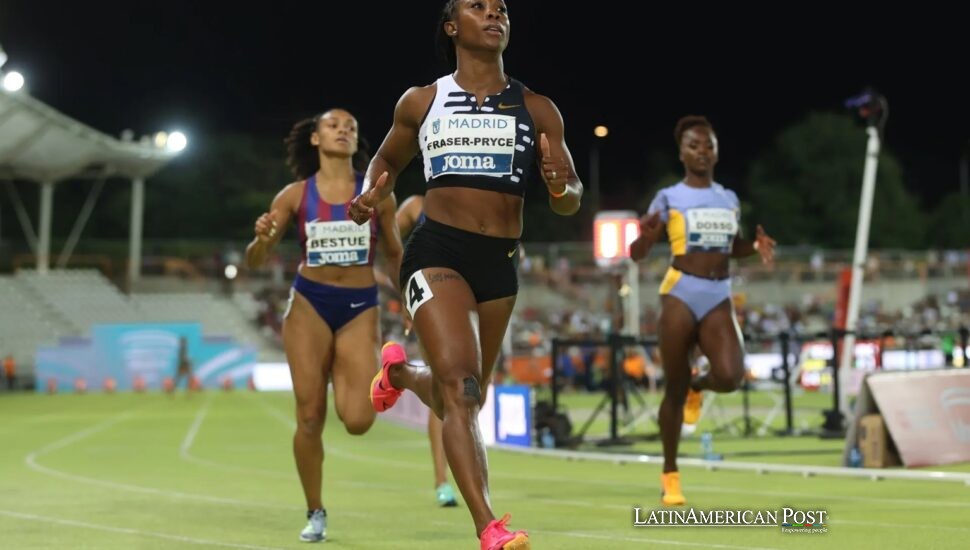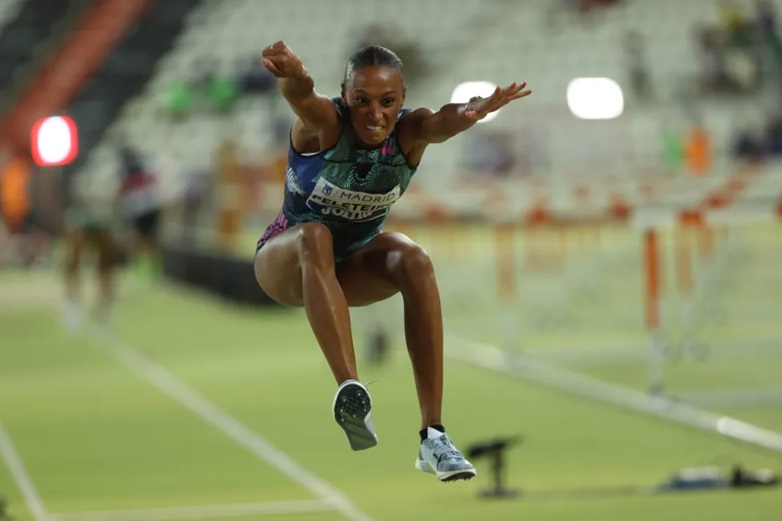Jamaica’s sprint queen Shelly-Ann Fraser-Pryce bows out in glory

Shelly-Ann Fraser-Pryce closed her glittering sprint career where it began—on Japanese soil—with one final medal, one last roar from the crowd, and the passing of a baton to the next generation. For Jamaica’s “Pocket Rocket,” it was farewell on her own terms.
A legend defined by longevity and resilience
Eighteen years ago in Osaka, Fraser-Pryce stepped onto the world stage as a reserve. In Tokyo this month, she walked off it as the most decorated female 100m sprinter in history. At 38, her final race brought silver for Jamaica in the 4x100m relay, alongside 21-year-old twin sisters Tia and Tina Clayton—an intergenerational relay in every sense. “I have had an amazing career and today’s medal is the icing on the cake,” she told BBC Sport. “It’s a full circle moment. I couldn’t have it any other way.”
Fraser-Pryce’s legacy is not just about the medals—though her tally is staggering, spanning three Olympic golds and ten world championship titles. It is about durability. She has competed in every major global event since 2007, missing only London 2017, when she gave birth to her son, Zyon, the day after the 100m final. Her comeback as a mother was unprecedented: five more global podiums, two world 100m crowns, and a rewriting of what was thought possible for female athletes in their thirties.
The power of finishing on her own terms
Retirement loomed last year after her painful withdrawal from the Paris Olympic semifinals. Fraser-Pryce later revealed she had suffered a panic attack after being denied timely access to the warm-up track, robbing her of the finale she craved. “It was so hurtful,” she admitted. For her, 2025 was about reclaiming control. She reached the 100m final, finishing sixth, only 0.19 seconds off the podium against rivals more than a decade younger. And then, fittingly, she stepped up once more with her relay teammates to end on the podium.
“A lot of people might question why come back [after giving birth],” she said. “But I think it is so important to finish on your own terms.” For Fraser-Pryce, who has given so much to the sport, the decision to retire was a gift to her family and to herself. “Maybe, when I head home, I will have all the feels,” she mused, with the humility and warmth that has always defined her.
Reverberations beyond Jamaica
Her influence is woven into the next generation of athletes across the globe. In Tokyo’s National Stadium, the crowd of 60,000 roared as her name was called, the kind of ovation usually reserved for home stars. Melissa Jefferson-Wooden, the American who went on to win double gold in the 100m and 200m, admitted: “Shelly-Ann is the greatest of all time. She inspired me as a child.”
Tributes poured in from across the sprinting world. Usain Bolt, the only Jamaican whose stardom rivals hers, told the BBC: “She’s a legend in my book. She left, had a kid, came back and still dominated. I’m happy to know and to see this greatness.” Trinidadian former world champion Ato Boldon was equally emphatic: “It is the 100m career by which all others will be measured.”
It is telling that even in retirement, Fraser-Pryce continues to shift perceptions. She was the oldest woman ever to win a world 100m title, and then broke her own record three years later. Her presence proved that motherhood and age are not barriers but new chapters. That message resonates in sports far beyond track and field.

EFE/Kiko Huesca
The meaning of a Jamaican farewell
Fraser-Pryce leaves sprinting not just as an athlete but as a cultural icon. She was affectionately dubbed the “Pocket Rocket,” her five-foot frame belying an explosive power that launched her to 10.60 seconds at her peak. She carried herself with joy—flashing her signature bright hair, beaming smile, and fierce determination.
Her farewell is also a national story. Jamaica has produced an unbroken line of sprinting royalty, from Merlene Ottey to Bolt, Elaine Thompson-Herah, and now the Clayton twins. Fraser-Pryce bridged those eras. She reminded the world that sprinting is not merely about raw speed but about resilience, dignity, and defiance.
As she posed for photographs in Tokyo, smiling with fans and teammates, the sense was not of an ending but of a baton passed. She spoke of plans to focus on advocacy and supporting women and athletes. “I want to continue to make an impact,” she said. If history is any guide, she will.
Fraser-Pryce’s record speaks volumes—25 global podiums, five Olympic Games, and a presence that defined women’s sprinting for nearly two decades. But her true achievement is harder to quantify: the inspiration she gave to countless young athletes who now lace up their spikes believing age and motherhood need not dim ambition.
Also Read: Thirty Hours, Three Summits: How One Runner Redrew Peru’s Map of Possibility
In Tokyo, Jamaica’s sprint queen bowed out, but her roar still echoes. The Pocket Rocket may have crossed her final finish line, yet her legacy will keep running—carried by those she inspired, and by the generations who will chase her records for decades to come.





